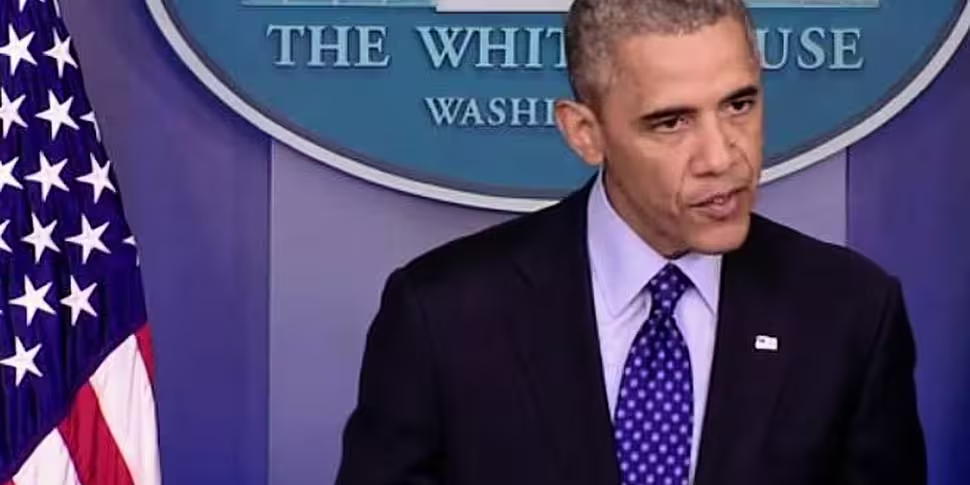The US is threatening military action, if needed, to stop extremists who are trying to take over Iraq.
President Obama is also sending up to 300 advisers to train Iraqi forces, but is adamant American troops will not engage in combat with the Islamist militants.
The contingent will be made up of special forces and will staff joint operations centres for intelligence sharing and planning, officials said.
Meanwhile US Secretary of State John Kerry says he will meet European leaders to discuss the growing crisis:
The President also said he was sending Secretary of State John Kerry to the Middle East and Europe at the weekend for talks with US allies and partners on ways to stabilise the region.
Retired U.S. general Tom McInerney explains how air support would be used:
Opposition to al Maliki
Islamic extremist group ISIS has seized large swathes of the country in recent days.
Mr Obama stressed Iraqi Prime Minister Nouri al Maliki needed to take urgent steps to heal Iraq's sectarian rift, but stopped short of calling for him to go, saying: "It's not our job to choose Iraq's leaders."
However, leading US lawmakers have joined calls for Mr al Maliki to quit as a condition of US help in driving back the Islamic extremists.
Sunni tribal chief Sheik Ali Hatem al Suleiman, the emir of the Sunni Dulaim tribe from Anbar province, said Mr Obama could no longer rely on Mr al Maliki to solve the rising insurgency.
"The real problem in Iraq is al Maliki himself. I don't think Obama's speech addressed the reality of today's Iraq.
"You can't rely on him. The man has become paralysed."
Oil battlefield
As Mr Obama announced his most significant response to the Iraqi crisis, the sprawling Baiji refinery, 200km north of the capital near Tikrit, was transformed into a battlefield.
Troops loyal to the Shia-led government held off the ISIS insurgents and their allies who had stormed the perimeter a day earlier, threatening national energy supplies.
Elsewhere, ISIS has seized a chemical weapons facility built by Saddam Hussein, which contains a stockpile of old weapons, according to the Wall Street Journal.
But US officials are reportedly confident that any weapons stored at the Al Muthanna complex - which has not been in active use for years - are not usable.









